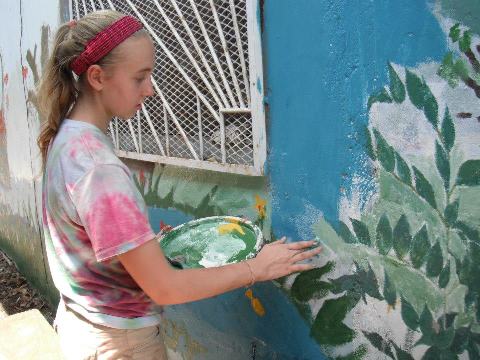I am often asked about volunteer scams and whether a given volunteer program is “legit” or not
and I can understand the question because volunteers organising a placement are right to be concerned about where they are headed. However the word ‘scam’ which is sometimes used with reference to some volunteer programs is taking things a bit far, true volunteer scams are rare in South and Central America…
Let me expand on my definition of scam in this context; an example of a volunteer scam is when a volunteer program somehow extracts some money from you (e.g. a upfront fee to reserve a place) then, when you fly-in, you find well, nothing. The organisation doesn’t exist, you have lost your money and funnily enough they are no longer responding to your emails. A pretty clear-cut scam.
What I want to write about in this post are the far more frequently occurring “low-level scams” (can’t think of a better term) that are unfortunately much less easy to identify, it’s what happens when good volunteer programs go bad.
Grass-roots volunteer organisations are usually started with the very best of intentions, initially run on idealism & enthusiasm – and a wing and a prayer. Local program directors are initially somewhat surprised that gringos are even interested in working with them and this is how a lot of great volunteer organisations start, locally run with occasional volunteer involvement.
Fast forward a ~year or so and with the program better-known & growing and the workload increasing, pragmatism replaces idealism and the founders start to encounter the difficulties of running a volunteer-staffed organisation with minimal resources… Reality sinks in and this is where things can go wrong; With the organisation now established and fee-paying volunteers arriving in numbers (and this issue only occurs in organisations that charge fees) it’s very easy for an organisation to lose its way; program directors take their foot of the gas and sometimes (in a worse case situation) become lazy and corrupted: There have been instances of directors taking a cut of volunteer fees and allowing a program to stumble-on, when it’s just a shadow of its former self, simply as a means of bringing in volunteer revenue. This is the most frequently occurring type of low-level “scam” that prospective volunteers should be aware of.
Interestingly, organisations that are rotten in this way can still do good work, which is why it’s common for some ex-volunteers to speak highly of a given organisation when others see the bigger picture and condemn it, so the word ‘scam’ doesn’t really apply here.
It’s difficult for websites like this one to pick up on what’s happening for the same reason, the organisation may have been recommended by some of the first wave of volunteers; it may take months for me to find out that things have subsequently gone pear-shaped.
I want to stress that allowing a volunteer organisation to drift in this way isn’t a South American thing, it’s a human thing and it’s just as likely to happen in London as it is in Lima. But the thing is that if you’re reading this, you are more likely to be volunteering in Lima… And establishing that your chosen volunteer organisation has gone off track isn’t an easy thing to do when you’re on the other side of the world. But that doesn’t mean it’s impossible and speaking (listening) to former volunteers about their experience with the organisation (and checking the scams and warnings section of the FAQ) is the best advice I can give to establish if a volunteer organisation is both legit and a good fit for you.





